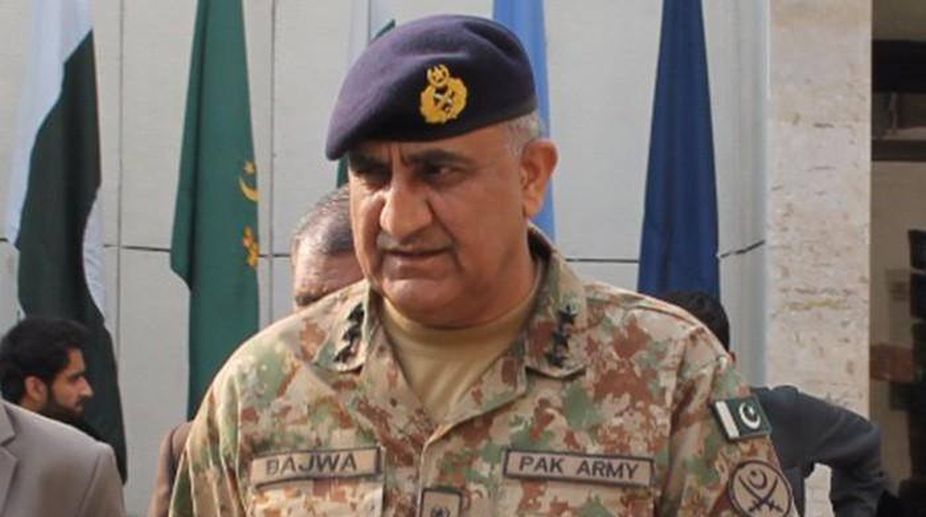The Pakistan envoy to the US, Aizaz Ahmad Chaudhry, recently blamed India for stalling the peace process. He stated that Pakistan was always ready and willing to start the dialogue process but India was not.
He went on to add that bilateral ties were affected due to delay in the negotiation process. In the same breath, he stated, “India is using force and committing horrendous human rights violations in Kashmir.”
Similar suggestions for talks have been made by Prime Minister Nawaz Sharif and his foreign affairs advisor, Sartaj Aziz.
Every international leader visiting Pakistan is requested to be an intermediary and the joint statement at the end of the visit states his willingness to help.
The Turkish President prior to his visit to India echoed the same words, which found no takers in Delhi. The desire for talks by representatives of the Pakistan government could be due to a variety of reasons.
First is the shakiness of the present regime. Nawaz came to power with the promise of improving relations with India. He has been unable to even commence dialogue; hence his main promise remains unfulfilled. Asif Ali Zardari, leader of the main opposition Pakistan People’s Party (PPP) has repeatedly raised this subject. Nawaz’s involvement in the Panama papers, now under investigation, might lead to his indictment, reducing his present tenure.
Elections are due next year and even if Nawaz survives the Panama crisis, he would have little to show, hence may face defeat.
Secondly, there is the increasing rift between the powerful deep state and the government. With open support to terrorism in both India and Afghanistan, it has ensured that Pakistan faces antagonists on both fronts. The civil government has desperately attempted to improve relations on both sides, but to no avail. India cancelled talks post Pathankot. Pakistani officials did comment that terror strikes should not derail talks. They have commented that the only way forward is to continue talks irrespective of terror strikes, but it cut no ice in Delhi. The Afghan president turned down an invitation to visit Islamabad.
Thirdly, Pakistan needs to project itself as a nation seeking peace, while India turns its back on it. It repeatedly suggests multiple options for talks, even attempts to send personal messages through couriers, Sajjan Jindal being an example, however receives no answer. Its sincerity has always remained in doubt, solely because the core issue of terrorism has been unaddressed. Pakistan’s active interference in Kashmir has reduced chances of talks.
Fourthly, Pakistan is being clearly viewed as a terror producing factory. Its products have been exported to Afghanistan and India and may soon enter China.
It is also losing trust of Iran. To safeguard its image, it plays its own terror card, blaming India and Afghanistan as sponsors of terror on its soil. Its announcements of talks to resolve issues are also aimed at projecting itself as a victim, rather than the benefactor.
However, none of its actions have won it any sympathy. The latest battle ground emerging is Kulbhushan Jadhav.
The visit of industrialist Jindal to Pakistan and his personal interaction with Nawaz only increased the distance between the army and the government.
Nawaz did make a statement that the visit was his initiative, thus indicating another attempt to resume dialogue.
The Pakistan army reacted immediately.
The beheading incident and the announcement of death sentence to Kulbhushan, both under its tutelage, ensured an end to resumption of talks.
Everything is now back in cold storage, despite temporary relief being granted by the ICJ. For the civilian government, relations with India are essential for growth and development.
Whether India has a hand or not in the insurgency on Pakistan’s western borders is not the question, the fact is that India has a greater hold on Afghanistan than Pakistan, hence the ability to influence the Afghan government. Islamabad is aware and desires peace, but the army is unwilling.
The CPEC is strictly dependent on the security of routes and of Chinese citizens employed for its monitoring and development. Attacks on them and projects under construction can offset it, leaving Pakistan in financial doldrums. Attacks are already increasing in tempo in Baluchistan and could soon spread, after all CPEC also transits through the area dominated by the Pakistan Taliban and Pakistan Occupied Kashmir.
It could offset the delicate economic balance which would enable Pakistan to repay its loans. In such a scenario, it is the civilian government which would lose face, not the army.
Pakistan’s army remains unconcerned, after all its generals have limited exposure to economics and diplomacy, though they believe they cannot submit the power they possess. Further the careful nurturing of the Pakistani mind into believing that India seeks its downfall and is suppressing human rights in Kashmir would be shattered if talks commence and progress.
As has been aptly said, while nations have an army, the Pakistan army has a nation. For the civilian government, peaceful resolution of issues with all its neighbours, is the answer. Antagonism on two borders, with an increased threat from the third, only weakens the polity.
While it faces internal brickbats, the military gains credit despite its failures since it projects itself as the saviour of the nation. Pakistan’s Federal Investigative Agency (FIA) cracks down on anyone who criticises the army on social media; but not the government.
Thus, the perpetual battle between the polity and the army would continue. The polity would continue to strive for talks in every forum, while the military would obstruct. Never once has the all-powerful army chief even mentioned talks as an answer to resolve issues.
For India, the choices are limited. Every time it has taken a step forward, it has been stabbed in the back.
Hence irrespective of offers, unless the Pakistan civilian establishment gains control over the army, ignoring talks is the only solution.
The writer is a retired Major-General of the Indian Army.











